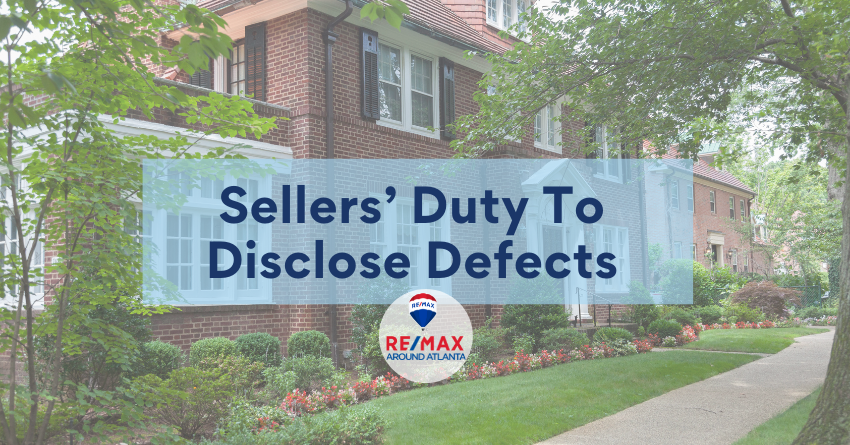|
Yikes! We weren’t told about the bats in the attic!
What do we do now? Your buyers have closed on the property and moved in. The water pressure is low. There are termites. The attic has bats. The foundation has a hidden crack that your inspector didn’t see and the seller didn’t disclose. Can the Buyer Sue? Maybe, but first, what you can and cannot say. Real estate agents are (generally) not lawyers and do not have the expertise or the license to provide legal advice to a client. The information in this article is for your knowledge. Always recommend that a client seek advice from their legal counsel. The Seller Must have known about the defect. Georgia is a Caveat emptor or Buyer Beware State. The legal rule caveat emptor basically means that once you buy the home, whatever you paid for is what you got, and buyers have a limited ability to sue the seller for any defects discovered. Under Georgia law, the Seller is obligated to disclose material facts that 1) he is or should have been aware of, 2) could not be discovered by the buyer’s exercise of due diligence, and 3) the seller knows the buyer is unaware of and would be important to the buyer’s decision to buy or the price the buyer would pay. These 3 elements are fact-intensive and, if your buyer wants to sue, could be very expensive to prove. The defect must be a “material” defect. That is, an item that would have been important to the buyer in making a decision of whether or not to purchase or how much the buyer would have been willing to pay or that poses a safety risk. Bottom line, unless the seller intentionally tried to conceal a defect, for example, by lying or hiding it, buyers often cannot get relief. The Buyer has responsibility too. If defects could have been discovered by the exercise of reasonable due diligence by the buyer, the buyer generally can’t get relief. At a minimum, the buyer should have an inspection by a professional inspector. However, generally, home inspectors have minimal liability for missed conditions or items. What responsibility they do have is typically capped at the cost of the inspection. If there is a unique condition or feature in the home, it is recommended that the buyer hire an inspector that is a specialist in addition to the general inspector. Think septic, pool, radon, etc. The Four Corners Rule and Merger Doctrine Any conversation or any information stated outside the “Four Corners” of the contract cannot be relied upon in litigation. Merger Doctrine in Georgia says that, generally, the Deed at closing merges with the contract and extinguishes the terms of the PSA. If you want terms to survive the closing, state that specifically in the Special Stipulations. Bottom line: If information from the seller is important, include it in the contract. (All parties acknowledge and agree that..). If you want to rely on it after closing, state that the term survives the closing of the contract. Fraud Fraud is an exception to the four corners rule and the merger doctrine. However, fraud is very hard to prove. Facts must be gathered by the Plaintiff, which is expensive. The Buyer must prove justifiable reliance on a misrepresentation of the seller (or the listing agent), that the misrepresentation was meant to induce the buyer to purchase the property and that the buyer was damaged by that reliance. Builder Liability for Post-Closing Defects Builder contracts in Georgia generally include reference to the Right to Repair Act. Georgia is a contractor friendly dispute resolution statute. Under the terms of the Act, the Builder cannot be sued until the buyer goes through a specific resolution process. The process takes months and gives the builder the option to offer to repair. Litigation is a last resort. Before considering undisclosed material defect litigation, consider negotiation. Litigation is a last resort to resolving conflict. It is expensive, uncertain and time consuming.
1 Comment
2/6/2024 10:45:33 pm
Great post on defects discovered after closing! It's so important for both buyers and sellers to be aware of their responsibilities and rights. I especially like the point about the buyer's responsibility to perform due diligence. It's always better to catch problems early on than to have to deal with them later. As a loft boarding specialist, I would also add that many defects discovered after closing could have been prevented with a proper loft boarding inspection. A loft boarding inspection can identify potential problems such as structural issues, water damage, and electrical hazards. By addressing these issues early on, homeowners can save themselves a lot of time, money, and stress in the long run. I hope this comment is helpful!
Reply
Leave a Reply. |
RMAAReal Estate News, Brokers Blog & More Categories
All
Archives
July 2024
|


 RSS Feed
RSS Feed